Advisory Committee to the Director Centers for Disease Control and Prevention
Members
Dileep G. Bal, MD, MS, MPH
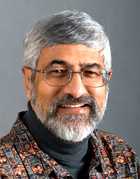
Dileep G. Bal, MD, MS, MPH
District Health Officer
Hawaii State Department of Health
Kauai, HI
(Dr. Bal is a member of the Public Health – Health Care Collaboration Workgroup)
Dr. Dileep G. Bal began working for the Hawaii State Department of Health in September 2005, as the District Health Officer for the Island of Kauai, and as Special Advisor to the Director of the Department on Cancer, Chronic Disease, Tobacco and Nutrition. He is a Clinical Professor at both the University of Hawaii Cancer Center and the Department of Family and Community Medicine of the College of Medicine (University of Hawaii).
Dr. Bal had been with the State of California for over two decades, where he served as the Chief of the Cancer Control Branch within the Department of Health Services. With the advent of Proposition 99, which added a $.25 tax on each package of cigarettes sold in California, he became responsible for implementing California’s tobacco control efforts. This tobacco use prevention and cessation program was one of the largest of its kind in the world and has been universally acclaimed for its innovations and effectiveness. He is the founder/director of California’s Tobacco Control and Obesity Control efforts. His branch’s annual budget was in excess of 250 million dollars.
Since 1981, Dr. Bal had held an appointment as a Clinical Professor at the medical school of the University of California at Davis, where he was active in the teaching and research programs. He has published extensively in the areas of cancer prevention and control, especially about diet and cancer, tobacco, and cancer and the underserved. Dr. Bal has been Principal Investigator on several large National Cancer Institute and Centers for Disease Control cancer prevention and control projects. Currently he is on the editorial board or, is an active reviewer, for several peer-reviewed medical journals as well as for the Institute of Medicine of the National Academy of Sciences. Dr. Bal is a frequent speaker on public health, medical and social issues, both nationally and internationally. He was the commencement speaker at Brown University Medical School in May 2005.
Prior to going to California in 1981, Dr. Bal was in Tucson, Arizona for ten years, where he was the Director of the Pima County Health Department and on the full-time faculty of the University of Arizona, College of Medicine. Dr. Bal was born and educated mainly in New Delhi, India. His medical degree is from the All India Institute of Medical Sciences. He also has graduate degrees in Public Health from Columbia and Harvard Universities. He has been board certified by the American Board of Preventive Medicine since 1975.
Dr. Bal is very active with the American Cancer Society at the local, state, and national levels. He has been a member of the National Board of Directors and a National Officer, in addition to being an Honorary Life Member, and Past President of both the Sacramento Unit and the California Division of the American Cancer Society. In 2000-2001, Dr. Bal was the National President of the American Cancer Society.
Kenneth I. Berns, MD, PhD
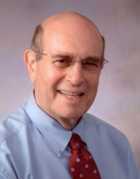
Kenneth I. Berns, MD, PhD
Distinguished Professor Emeritus
Molecular Genetics and Microbiology
College of Medicine, University of Florida
Gainesville, FL
Kenneth I. Berns, M.D., Ph.D. recently retired as Director of the Genetics Institute at the University of Florida. Previously he served as Dean of the College of Medicine and Vice President for Health Affairs. Dr. Berns has devoted most of his scientific research career to the study of the molecular basis of replication of the human parvovirus, adeno-associated virus. He has been a major contributor to our knowledge concerning the ability of adeno-associated virus to establish latent infections and to be reactivated. His work has been instrumental in providing the basis for the current interest in the use of this virus as a vector for gene therapy. He also has had a longstanding interest in medical education and has served as a member of the Liaison Committee on Medical Education. He is a past member of the Composite Committee of the United States Medical Licensing Examination and is a past Chair of the Association of American Medical Colleges. Dr. Berns has served on many scientific advisory committees including the Genetic Biology Panel of the NSF, the Virology Study Section of the NIH, the Board of Scientific Counselors of the National Institute of Allergy and Infectious Diseases, the Virology-Microbiology panel of the American Cancer Society (Chair), the Recombinant DNA Advisory Committee (Chair) of the NIH and the National Advisory Research Resources Council (NARRC) of the NIH. He has also served similar roles for the EPA, the U.S. Army (NRC) and the Aaron Diamond AIDS Research Center. He is a member of the National Academy of Sciences and the Institute of Medicine of the National Academy of Sciences.
Dr. Berns is currently a member of the National Science Advisory Board for Biosecurity. Earlier he served as chair of the National Research Council’s “Standards and Policies for Decontaminating Public Facilities Affected by Exposure to Harmful Biological Agents: How Clean Is Safe?” This committee’s final product, Reopening Public Facilities after a Biological Attack: A Decision Making Framework, was completed in June of 2005. He also served on the Institute of Medicine Committee for Research Opportunities for Smallpox Virus, as well as the National Research Council Committee on the Metropolitan Medical Response to Weapons of Mass Destruction. Finally, he chairs the American Society for Microbiology Taskforce on Biological Weapons.
Benjamin K. Chu, MD, MPH, MACP

Benjamin K. Chu, MD, MPH, MACP
President & Chief Executive Officer
Memorial Hermann Health System
Houston, TX
Dr. Chu was appointed President and CEO of Memorial Hermann Health System, effective May 9, 2016. In his role, Dr. Chu is responsible for leading and overseeing the System’s 16 hospitals and more than 230 diagnostic and specialty centers with more than 25,000 employees and 5,500 affiliated physicians in the greater Houston area.
The first-ever physician to be CEO of Memorial Hermann, Dr. Chu brings more than four decades of healthcare experience as a clinician, administrator and policy advocate. Dr. Chu passionately believes that the quality of patient care and patient safety are of the highest importance. He also places a strong emphasis on physician integration and population health.
Prior to joining Memorial Hermann, he served as group president for Kaiser Permanente’s Southern California and Georgia regions where he directed health plan and hospital operations for 14 hospitals and 237 medical offices to serve more than four million members. Dr. Chu achieved several notable accomplishments while at Kaiser, including effective implementation of a fully-integrated electronic health record system and population health management tools for improving outcomes for patient care.
He also previously served as president of New York City Health and Hospitals Corporation (HHC), the largest public hospital system in the country. He was also senior vice president for Medical and Professional Affairs for HHC in New York and served as acting commissioner of health for the New York City Department of Health.
Dr. Chu also has experience as an academic health center leader, serving as senior associate dean at Columbia University College of Physicians and Surgeons. At New York University School of Medicine and Medical Center, Dr. Chu was associate dean and vice president for Clinical Affairs. As a policy advocate, Dr. Chu was a Robert Wood Johnson Policy Fellow, working as the legislative assistant for health for New Jersey Sen. Bill Bradley.
Dr. Chu has been recognized nationwide for his innovative thought leadership in the healthcare industry. In 2015 he was elected to the National Academy of Medicine, which is considered to be one of the highest honors in the fields of health and medicine. He was also recognized as one of Modern Healthcare’s 50 Most Influential Physician Executives and Leaders in 2015.
Dr. Chu earned his medical degree at New York University and began his career as a primary care internist in Brooklyn, New York. He earned his master’s degree in public health from Columbia University and a bachelor’s degree in psychology from Yale University.
Christopher Elias, MD, MPH
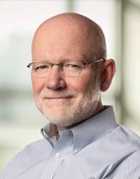
Christopher Elias, MD, MPH
President, Global Development Program
Bill and Melinda Gates Foundation
Seattle, WA
(Dr. Elias is a member of the Global Workgroup)
Dr. Chris Elias is the President of the Global Development Program at the Bill and Melinda Gates Foundation where he leads the foundation’s efforts in a diverse range of program areas aimed at finding creative new ways to ensure solutions and products get into the hands of people in poor countries who need them most. Focusing on areas with the potential for high-impact, sustainable solutions that can reach hundreds of millions of people, Dr. Elias oversees Global Development’s portfolio in Agriculture Development; Emergency Response; Family Planning; Financial Services for the Poor; Maternal, Newborn, & Child Health; Nutrition; Polio Eradication; Vaccine Delivery; and Water, Sanitation & Hygiene. A common theme of these programs is innovative and integrated delivery, including an emphasis on strengthening of primary health care systems.
Dr. Elias holds an MD from Creighton University, having completed postgraduate training in internal medicine at the University of California San Francisco, and an MPH from the University of Washington, where he was a fellow in the Robert Wood Johnson Clinical Scholars Program. He is a member of the Institute of Medicine. His professional background is in public health and medicine. Prior to joining the Gates Foundation in February 2012, he worked in various positions and countries for international nonprofit organizations, most recently serving as the president and CEO of PATH, an international, nonprofit organization dedicated to improving the health of people around the world by advancing technologies, strengthening systems, and encouraging healthy behaviors.
Thomas A. Farley, MD, MPH

Thomas A. Farley, MD, MPH
Health Commissioner, City of Philadelphia
Philadelphia, PA
(Dr. Farley serves as Chair of the Global Workgroup and member of the Ethical Considerations for Public Private Partnerships Workgroup)
Thomas Farley is Commissioner of Health for the City of Philadelphia. From 2009 to 2014, Dr. Farley was Commissioner of the New York City Department of Health and Mental Hygiene. As Health Commissioner, Dr. Farley advocated for innovative public health policies, including making the city’s parks and beaches smoke-free, prohibiting price discounting of cigarettes, raising the legal sales age of tobacco to 21, capping the portion size of sugary drinks sold in restaurants at 16 ounces, and restricting the burning of air-polluting dirty fuels to heat buildings. He is coauthor of Prescription for a Healthy Nation (Beacon Press) with RAND Senior Scientist Deborah Cohen, and author of Saving Gotham: A billionaire mayor, activist doctors, and the fight for 8 million lives (W.W. Norton).
Jonathan E. Fielding, MD, MPH, MBA

Jonathan E. Fielding, MD, MPH, MBA
Distinguished Professor of Health Policy and Management and
Pediatrics, Fielding School of Public Health and
David Geffen School of Medicine
University of California, Los Angeles
Los Angeles, CA
Dr. Fielding has contributed to the fields of public health and prevention for 45 years and has served in a variety of leadership positions. He is a Distinguished Professor of Public Health and Pediatrics at the University of California, Los Angeles, where he has been a tenured faculty member since 1979. The public health school was renamed the UCLA Jonathan and Karin Fielding School of Public Health in 2012 in recognition of their generosity and Dr. Fielding’s many contributions to improving the public’s health. He received his medical, public health and history of science degrees from Harvard University and an MBA in finance from the Wharton School of Business.
Dr. Fielding led the public health activities for Los Angeles County as Director of Public Health and Health Officer for 16 years until 2014. In this role, Dr. Fielding was responsible for all public health functions including surveillance and control of both communicable and non-communicable diseases, and health protection (including against bioterrorism) for the County’s 9.8 million residents. He directed a staff of nearly 4,000 with an annual budget exceeding $850 million. Dr. Fielding also served as Commissioner of the First 5 L.A. Commission, which provides over $100 million in funding annually for programs to improve the health and development of children 0-5 years.
In addition to his UCLA work, he has been a founding member and long-time chair of the U.S. Community Preventive Services Task Force, and was a founding member of the U.S. Preventive Services Task Force. Both Task Forces assess the evidence for and make national recommendations on the effectiveness of health relevant policies, programs and practices. Dr. Fielding is a Presidential appointee and founding member of the national Advisory Group on Prevention, Health Promotion, and Integrative and Public Health, and also consults to the Centers for Disease Control and Prevention. Formerly, he chaired the Department of Health and Human Services Secretary’s expert advisory group on the national 2020 Healthy People Project. Dr. Fielding previously served as Commissioner of Public Health for Massachusetts and is an elected member of the Institute of Medicine, National Academy of Sciences.
Dr. Fielding’s current research interests include the effectiveness of governmental and private sector policies and programs to improve health and cost-effectiveness. His research also covers how to better invest the excessive resources in our health care system to yield lasting improvements in health and well-being.
David W. Fleming, MD

David W. Fleming, MD
Vice President, Public Health Impact
PATH
Seattle, WA
(Serves as the Chair of the Advisory Committee to the Director, and a member of the Global Workgroup and STLT Subcommittee)
Dr. David Fleming is PATH’s vice president of Public Health Impact, which houses PATH’s programs in reproductive health, maternal and child health and nutrition, non-communicable diseases, malaria control and elimination, and HIV/AIDS and tuberculosis. He also oversees cross-programmatic collaboration at PATH, which seeks to maximize the impact of our work across the value chain in critical health areas, including maternal and neonatal health, diarrheal disease, and malaria.
Before joining PATH in 2014, Dr. Fleming served as the director and health officer for Public Health—Seattle and King County (PHSKC), with a budget of more than $300 million, serving a resident population of 2 million. Prior to that, Dr. Fleming was director of Global Health Strategies at the Bill & Melinda Gates Foundation, overseeing a grant portfolio of more than $1 billion in vaccine-preventable disease, nutrition, maternal and child health, leadership, emergency relief, community health programs, and human resources and health information. Dr. Fleming also served as deputy director at the U.S. Centers for Disease Control and Prevention (CDC), Science and Public Health, and as deputy administrator of the U.S. Agency for Toxic Substances and Disease Registry.
Dr. Fleming currently serves on the boards of Global to Local Partnership and the Washington Global Health Alliance, both in Seattle, and the Trust for America’s Health in Washington, DC. His former global health board service includes GAVI, the Vaccine Alliance; the Global Alliance for Improved Nutrition (GAIN); the Health Metrics Network; and the Partnership for Maternal, Newborn and Child Health.
Dr. Fleming is a clinical associate professor at the University of Washington School of Public Health. He completed his internal medicine residency at the University of Oregon Health Services Center and his preventive medicine residency at the CDC.
Lynn R. Goldman, MD, MS, MPH
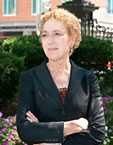
Lynn R. Goldman, MD, MS, MPH
Dean, Milken Institute School of Public Health
The George Washington University
Washington, DC
(Dr. Goldman is a member of the Ethical Considerations for Public Private Partnerships Workgroup)
A pediatrician and an epidemiologist, Dr. Goldman is Dean of the Milken Institute School of Public Health at the George Washington University School. Formerly she was a Professor at the Johns Hopkins University Bloomberg School of Public Health Department of Environmental Health Sciences, where her areas of focus were children’s environmental health, public health practice, and chemical regulatory policy. In 1993, Dr. Goldman was appointed by the President and confirmed by the Senate to serve as Assistant Administrator (AA) for the US Environmental Protection Agency, where she directed the Office of Chemical Safety and Pollution Prevention (OCSPP) from 1993 through 1998. As AA for OCSPP, she was responsible for the nation’s pesticide, toxic substances and pollution prevention laws. Under her watch, EPA overhauled the nation’s pesticides laws to assure that children would be protected by pesticide regulations. At EPA she was successful in promoting children’s health issues and furthering the international agenda for global chemical safety.
Prior to joining the EPA, from 1985 until 1993, Dr. Goldman served in several positions at the California Department of Public Health, most recently as chief of the Division of Environmental and Occupational Disease Control. She has conducted public health investigations on pesticides, childhood lead poisoning and other environmental hazards. She established the California Childhood Lead Poisoning Prevention Program and co-founded the Children’s Environmental Health Network.
She has a BS in Conservation of Natural Resources, an MS in Health and Medical Sciences from the University of California, Berkeley, an MPH from the Johns Hopkins Bloomberg School of Public Health, and an MD from the University of California, San Francisco. She completed pediatric training at Children’s Hospital, Oakland, California and is board-certified in pediatrics.
She was elected a member of the Institute of Medicine in 2007. She has received several awards including the Woodrow Wilson Award for Distinguished Government Service from the Johns Hopkins University Alumni Association (1999), Alumna of the Year from the UC Berkeley School of Public Health (2002), National Library of Medicine, Changing the Face of Women in Medicine (2003), election to the Delta Omega Honor Society (2007), the Children’s Environmental Health Network Child Health Advocate Award (2008), Maryland’s Top 100 Women, Maryland Daily Record (2009) and the Heinz Award for Global Change, (2010).
Dr. Goldman currently is vice chairman of the Institute of Medicine Roundtable on Environmental Health Sciences, a member of the NAS Board on Environmental Sciences and Toxicology and a member of the NAS Report Review Committee. She serves as a member of the US Food and Drug Administration Science Board. She is a member of the Board of Trustees of the Environmental Defense Fund.
Joseph Kanabrocki, PhD, CBSP
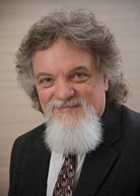
Joseph Kanabrocki, PhD, CBSP
Associate Vice President of Research Safety
Professor of Microbiology
University of Chicago
Chicago, IL
Dr. Kanabrocki is currently the Associate Vice-President of Research Safety and Professor of Microbiology at the University of Chicago. In these capacities, he serves as Select Agent Responsible Official, University Biosafety Officer, and Director of the Biosafety Programs at the University of Chicago’s Ricketts Regional Biocontainment Laboratory. Prior to his appointment at the University of Chicago, he served as the Institutional Biosafety Officer and Select Agent Responsible Official at the University of Wisconsin-Madison and Washington University in St. Louis.
He is a former member of the NIH Recombinant DNA Advisory Committee (RAC) and a current member of the National Science Advisory Board for Biosecurity (NSABB). He is also a former Councilor of the American Biological Safety Association (ABSA). In addition, he participated in the 2012 External Review of CDC’s Animal Biosafety Level 3 Vivarium Facility. He is a certified biological safety professional.
LaQuandra S. Nesbitt, MD, MPH

LaQuandra S. Nesbitt, MD, MPH
Director, District of Columbia Department of Health
Washington, DC
(Dr. Nesbitt serves on the Health Disparities Subcommittee)
Dr. LaQuandra S. Nesbitt returns to the District of Columbia Department of Health (DOH) from the Louisville Metro Department of Public Health and Wellness (LMPHW), where she was the Director and leading public health expert in Louisville, Kentucky. Dr. Nesbitt received her Bachelor of Science degree in Biochemistry from the University of Michigan-Ann Arbor, her medical degree from Wayne State University School of Medicine, and a Master of Public Health in Health Care Management and Policy from the Harvard School of Public Health. She completed an internship in family medicine at the University Hospitals of Cleveland/Case Western Reserve University. Dr. Nesbitt completed her family medicine residency in the University of Maryland’s Department of Family Medicine where she served as chief resident.
Dr. Nesbitt completed her fellowship training with the Commonwealth Fund Harvard University Fellowship in Minority Health Policy.
As health Director of LMPHW, Dr. Nesbitt committed to five strategic priorities for Louisville Metro: creating a culture of health and wellness in Metro Louisville; an expanded focus on social determinants of health and health equity; strengthening public-private partnerships; increased connection between public health and clinical medicine; and implementing an outcomes driven approach to program and policy development. During her tenure at LMPHW, the agency released the first Louisville Metro Health Equity Report; expanded the Mayor’s Healthy Hometown Movement to include tobacco prevention and control and chronic disease prevention and management; established the Mayor’s Healthy Hometown Leadership Team leading to the successful implementation of the city’s “health in all policies” approach; developed public-private partnerships to implement the Centers for Disease Control and Prevention’s Community Transformation Grant program; and worked with all local healthcare systems to complete their community health needs assessments and community health improvement plans. Dr. Nesbitt also served as co-chair of the Mayor’s Violence Prevention Work Group.
Prior to her role in Louisville, Dr. Nesbitt served separate terms as Senior Deputy Director for the Community Health Administration and Senior Deputy Director for the Center for Policy, Planning, and Evaluation at DOH. Prior to joining DOH, she was Assistant Professor in the Department of Family and Community Medicine and the Senior Coordinator for Health Disparities and Policy Research Initiatives in the Office of Policy & Planning at the University of Maryland School of Medicine. Her responsibilities encompassed providing primary care services to patients in inner-city Baltimore including adolescent health services, preventive medicine services, and chronic disease management with an emphasis on hypertension and diabetes care. Her academic interests include racial and ethnic disparities in health outcomes and health care services, workforce diversity, and improving access to care for the uninsured and underinsured through population health management, policy and health services research.
Lynne D. Richardson, MD, FACEP
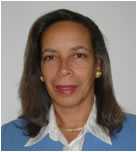
Lynne D. Richardson, MD, FACEP
Professor and Vice Chair of Emergency Medicine
Professor of Population Health Science and Policy
Icahn School of Medicine at Mount Sinai
New York, NY
(Serves as Chair, Health Disparities Subcommittee and member of the Public Health – Health Care Collaboration Workgroup)
Dr. Lynne D. Richardson is Professor and Vice Chair of Emergency Medicine and Professor of Health Evidence and Policy at Mount Sinai School of Medicine in New York City. A native New Yorker, she holds Bachelor’s degrees from Massachusetts Institute of Technology (MIT) in Life Sciences and Management; and the MD degree from the Albert Einstein College of Medicine. She completed her Emergency Medicine Residency at Jacobi Hospital/Albert Einstein College of Medicine, and completed a research fellowship with the AAMC Health Services Research Institute. Dr. Richardson is a nationally recognized Emergency Medicine health services researcher; her areas of interest are access and barriers to care, and improving effective utilization of health care resources. She was the Principle Investigator for the New York City Site of the PAD Trial, an international, randomized, controlled trial of public access defibrillation; and is currently the Principal Investigator for the “Community VOICES” Study, an NIH-funded study of “Community Views on Informed Consent in Emergency Situations.” Dr. Richardson serves on the Society for Academic Emergency Medicine Health Public 2010 Task Force and the American College of Emergency Physicians Public Health Committee. She is a member of the New York City Board of Health, the first emergency physician ever to serve in that Board’s one hundred and thirty-nine year history, and was recently nominated to serve on the Institute of Medicine Committee to Review the NIH Strategic Plan to Reduce and Ultimately Eliminate Health Disparities.
Sara Rosenbaum, JD

Sara Rosenbaum, JD
Harold and Jane Hirsh Professor
Milken Institute School of Public Health
The George Washington University
Department of Health Policy and Management
Washington, DC
(Ms. Rosenbaum serves as Chair of the Ethical Considerations for Public Private Partnerships Workgroup, a member of the Global Workgroup, and Chair of the Public Health – Health Care Collaboration Workgroup)
Sara Rosenbaum, JD, is the Harold and Jane Hirsh Professor of Health Law and Policy and Founding Chair of the Department of Health Policy and Management, Milken Institute School of Public Health at the George Washington University. She has devoted her career to issues of health law and policy affecting low income, minority, and medically underserved populations. Between 1993 and 1994, Professor Rosenbaum worked for President Clinton, directing the legislative drafting of the Health Security Act and developing the Vaccines for Children program. Professor Rosenbaum also served on the Presidential Transition Team for President-Elect Obama.
A graduate of Wesleyan University and Boston University School of Law, she has authored a leading health law textbook as well as more than 350 articles and studies focusing on all phases of health law and health care for medically underserved populations. A holder of numerous awards for her scholarship and service, Professor Rosenbaum is the recipient of the Richard and Barbara Hansen National Health Leadership Award (University of Iowa), a Robert Wood Johnson Foundation Investigator Award in Health Policy Research, and the Oscar and Shoshanna Trachtenberg Award for Scholarship, George Washington University’s highest award for scholarship. Professor Rosenbaum also served as a member of CDC’s Advisory Committee on Immunization Practice (ACIP) and as a Commissioner on the Medicaid and CHIP Payment and Access Commission, which advises Congress on federal Medicaid and CHIP policy.
Wilma J. Wooten, MD, MPH

Wilma J. Wooten, MD, MPH
Public Health Officer, County of San Diego
Health and Human Services Agency, Public Health Services
San Diego, CA
Dr. Wooten serves on the Health Disparities Subcommittee)
Dr. Wilma J. Wooten is trained in Family Medicine and has a Master’s degree in Public Health. She received both professional degrees from the University of North Carolina, Chapel Hill, followed by residency training at the Georgetown/Providence Hospital Family Practice Residency Program in Washington, DC. In 1989, she completed Preventive Medicine Residency with emphasis in Sports Medicine in the joint San Diego State University (SDSU), Graduate School of Public Health (GSPH)/University of California San Diego (UCSD) program. After this one year training, Dr. Wooten practiced medicine as a faculty member in the UCSD Department of Family and Preventive Medicine from 1990 to 2001. She remains a volunteer Associate Clinical Professor in the department and is an Adjunct Professor at SDSU/GSPH. She has been with the County of San Diego Health and Human Services Agency since 2001, initially as the Deputy Health Officer and now serving as the Public Health Officer since February 2007. In her current role, she has oversight for almost 500 employees and a budget of over $100M, serving a county of 3.2 million residents. She is an ardent supporter of public health and has a strong interest in health disparities. Dr. Wooten is a Board member and past president (2011-13) of the California Conference of Local Health Officers (CCLHO) and Board member and current President (2013-15) of the Health Officers Association of California (HOAC). She is also a past Board member (2009-2011) of the National Association of County and City Health Officials (NACCHO). Dr. Wooten began her three-year term on the Public Health Accreditation Board (PHAB) of Directors in January 2012.
- Page last reviewed: February 14, 2017
- Page last updated: March 21, 2017
- Content source:


 ShareCompartir
ShareCompartir